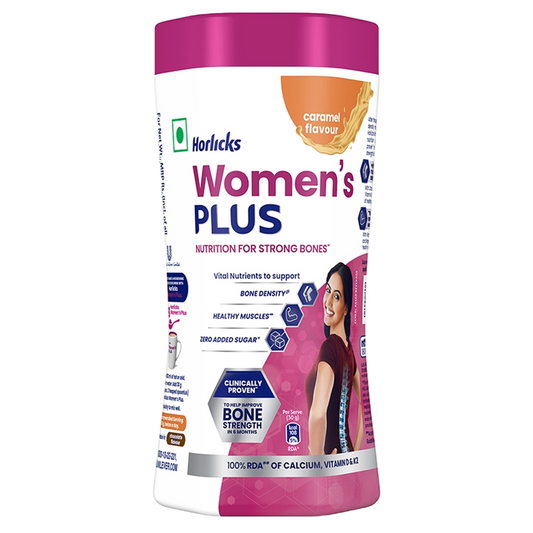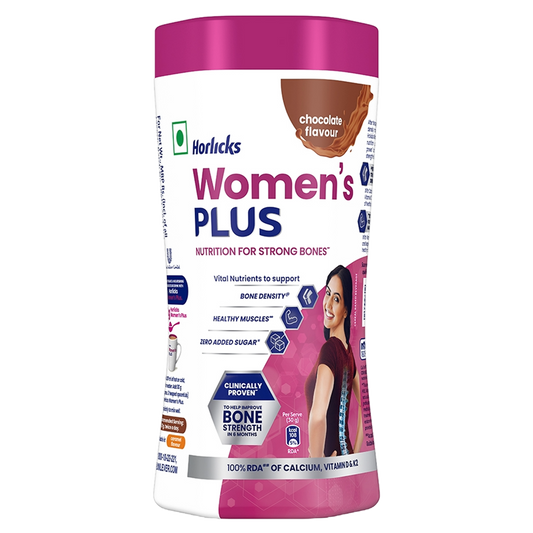Calcium is a mineral important for bone health, muscle development, and the prevention of joint problems. Our bones and teeth contain nearly 99 percent of the total calcium in our bodies. It gives our bones structure and strength, allowing them to support our body weight1.
In addition to strong bones, our bodies need enough calcium for our nerves to relay signals between organs and the brain efficiently. It is a necessary mineral for blood supply into our blood vessels and the release of enzymes and hormones that are necessary for the normal functioning of the human body2.
How Much Calcium Do I Need?3
Our bodies' calcium requirements vary depending on our age and stage of life. Infants (0-12 months old) need about 300 mg calcium per day while toddlers (1-3 years) need around 500 mg calcium per day. Similarly, children between the age group of 4-6 years and 7-9 years need 550 and 650 mg calcium per day. The RDA of calcium grows steadily as children age with 850 mg per day for the age group 10-12 years, 1000 mg per day for 13-15 years and 1050 mg per day for children aged between 16-18 years.
The daily calcium requirement for adult men and women is 1000 mg. For pregnant women, the RDA for calcium is the same (1000 mg per day), but lactating mothers can raise it by about 200 mg to meet their infants' needs and avoid postpartum bone loss. Menopausal and postmenopausal women are more likely to experience bone loss, brittle bones, and osteoporosis.
Calcium Deficiency
Inadequate calcium intake causes no noticeable effects in patients, so it is likely to go unnoticed until it is too late.4 This is because the bones serve as calcium reservoirs, and the body retains the necessary calcium levels by removing them from the bones.5
On the other hand, calcium deficiency can lead to low bone density and a higher risk of developing osteoporosis, brittle bones, and fall-related fractures due to weaker muscles and bones in the long run. Numbness and tingling sensations in the extremities, cardiovascular problems such as arrhythmia, and convulsions are all symptoms of severe calcium deficiency.6,7
Calcium-Rich Foods
If your calcium intake is not sufficient, it is important to make certain dietary changes and incorporate calcium-rich food items into your diet such as:
1. Milk and dairy products
Milk and other dairy products, such as yoghurt, paneer, cheese, buttermilk, and so on, are among the most calcium-rich foods available. A bowl of yoghurt with lunch and dinner, or as a mid-meal snack, will help to strengthen your bones. Including a cup of milk with your breakfast is an excellent way to ensure that you get your day off to a good start.
If you don’t find plain milk palatable, consider adding a spoonful of Horlicks Women’s Plus to it. A nutritional health drink designed especially for women, its advanced #CALSEAL formula delivers 100% daily requirement of three key nutrients proven to support bone health: calcium, Vitamin D, and Vitamin K2. Vitamin D helps with calcium absorption, and Vitamin K2 helps in binding calcium to bones.
According to studies, women are more likely than men to develop low bone density, necessitating the consumption of bone-building nutrients, as well as a well-balanced diet and an active lifestyle. Horlicks Women's Plus is a good choice for health-conscious women. Its delectable caramel and chocolate flavors will elevate a mundane cup of milk into something you'll look forward to every morning!
2. Dark green leafy vegetables
Dark green leafy vegetables such as spinach, fenugreek leaves, moringa leaves, amaranth, Colocasia leaves, etc., are some of the best sources of calcium and must find a place in your daily diet.8
3. Whole grains
Whole grains such as Ragi, Buckwheat, and Oatmeal are packed with multiple nutrients. Not only do they promote a fuller feeling for longer, but they are also powerhouses of calcium. You can include them in your breakfast in the form of pancakes or porridges, or in the form of bhakris in your main meals. Moreover, these whole grains are gluten-free too!
4. Sprouts
Moong, matki, masoor, chickpeas, horse gram, etc., all can be sprouted to increase their nutritional value by manifolds. Make a fresh mixed sprouts salad or a delicious sprouts sabzi for a mid-meal snack packed with calcium and other rich dietary fibre sources.
5. Nuts and seeds
Almonds, walnuts, coconuts, dried figs, peanuts, sesame seeds, chia seeds, flax seeds, etc., are all amazing sources of calcium. A handful of dried fruits and nuts soaked overnight and had first thing in the morning is a great way to kickstart your day with a boost of calcium and other vital nutrients.
6. Soy
Soy in soy milk, tofu, soy nuggets, or soy flakes are an excellent source of calcium and Vitamin D. It is amazing for people who are lactose intolerant, follow a vegan diet or for any other reason prefer avoiding dairy in their diets.
7. Oranges
Citrus fruits, such as oranges, are well-known for their high Vitamin C content, but they also contain calcium. Your bones will thank you if you have an orange as a mid-meal snack in your diet.9
It's never too early to start caring for your bones and keeping track of your calcium intake regularly.
In addition to incorporating calcium-rich foods in your diet, it's also important to complement calcium absorption by eating Vitamin D-rich foods like fatty fish, egg yolks, mushrooms, etc. Getting enough sun exposure is another thing that will ensure proper calcium absorption by your body.









